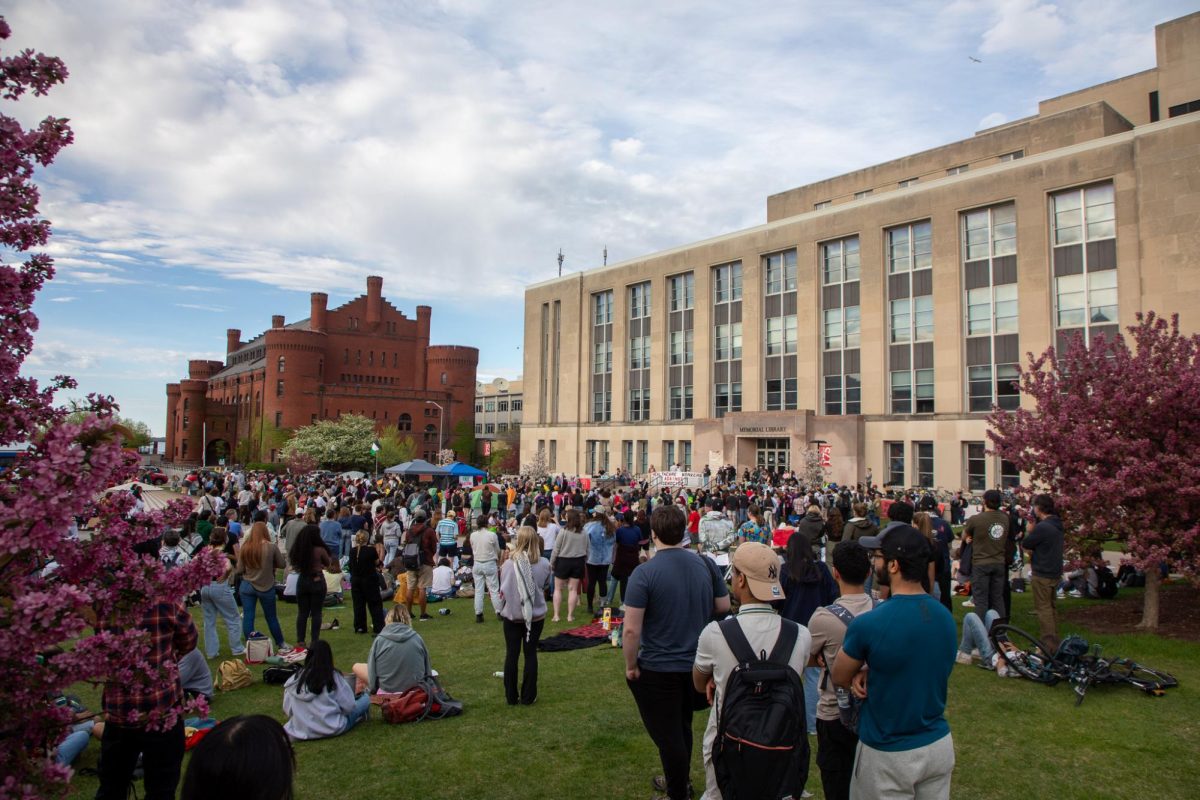Community members met Thursday night at the mayor’s urging to raise city budget concerns about deficiencies and allocations.
Madison Mayor Paul Soglin invited community members to join him at the Madison Senior Center to get involved in Community Budget Conversations, an attempt to encourage public input in budget development.
According to Soglin, various departments would start preparing their own budget during June and July with the help of their budget analysts in a typical budget process. The budget proposal would then be submitted to the Board of Estimates later in the year, and a formal hearing would follow before adoption of the budget.
Soglin said that in the past 40 to 45 years, the budget process had been following the same course, in which the public usually was not involved until the very end of the process.
He said starting last year, the city began to hold sessions with community members to encourage more feedback on the city’s performance and issues over budget allocation.
He added that there was a profound impact last year despite various budget problems. According to Soglin, it was the first time in a number of years in which there were no budget cuts in community services.
“This is about finding out what you want us to accomplish, what is it that you want,” Soglin said. “Then we will fund the program to accomplish that.”
Guy VanRensselaer, an organization improvement specialist with the city of Madison, said the conversation sessions aim to find out what Madison residents value most.
“Mayor Soglin is always seeking for community input in developing our 2013 budget, whether it is about making certain amendments or allocation of funds,” he said.
At the event, attendants were asked to work on an “Allocating $100,000” exercise, in which group members had to reach consensus on how to utilize a $100,000 budget and what kind of community services should be their first priorities.
A number of attendants suggested addressing more needs of the low-income group, including provide more bus passes, improve homeless housing and facilitate food pantries.
Karl van Lith, in the city’s Organizational Development and Training Office, said they would like to have more students involved in the budget crafting process. He said although they had communicated with some University of Wisconsin students in early April, the turnout was small because spring break was right before the session.
“The stuff that we did get back from students has a lot to do with safety issues, lighting and mobility,” he said. “They are really interested in that.”
He added that students are also concerned about residential parking and want more green spaces and parks.
He said that with more than 40,000 students, UW is definitely a large part of the town and students’ opinions are important.
According to VanRensselaer, the city has put up a survey on the Madison webpage to gather residents’ feedback. The survey has covered six categories including public safety, environmental services and economic vibrancy. He urged people who care about the community to participate in the survey.
















